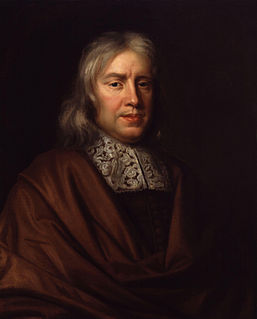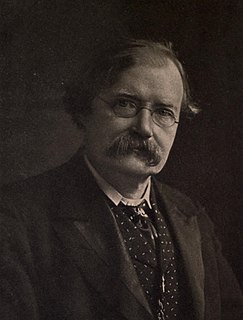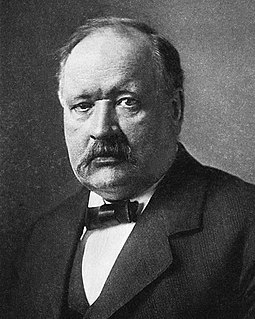Top 1200 Great Philosophers Quotes & Sayings - Page 2
Explore popular Great Philosophers quotes.
Last updated on November 22, 2024.
When we come to understand architecture as the essential nature of all harmonious structure we will see that it is the architecture of music that inspired Bach and Beethoven, the architecture of painting that is inspiring Picasso as it inspired Velasquez, that it is the architecture of life itself that is the inspiration of the great poets and philosophers.
Philosophy used to be a field that had content, but then 'natural philosophy' became physics, and physics has only continued to make inroads. Every time there's a leap in physics, it encroaches on these areas that philosophers have carefully sequestered away to themselves, and so then you have this natural resentment on the part of philosophers.
The mountains are fountains of men as well as of rivers, of glaciers, of fertile soil. The great poets, philosophers, prophets, able men whose thoughts and deeds have moved the world, have come down from the mountains - mountain dwellers who have grown strong there with the forest trees in Nature's workshops.
In the infancy of civilization, when our island was as savage as New Guinea, when letters and arts were still unknown to Athens, when scarcely a thatched roofed hut stood on what was later the site of Rome, this contemned people had their fenced cities and cedar palaces, their splendid Temple, their fleets of merchant ships, their schools of sacred learning, their great statesmen and soldiers, their natural philosophers, their historians and their poets.
The kind of approach I take is different from much of experimental philosophy. Although the experimental philosophers and I are certainly in agreement about the relevance of empirical work to philosophy, a good deal of their work is devoted to understanding features of our folk concepts, and in this respect, at least, I see them as making the same mistake as those armchair philosophers who are interested in conceptual analysis.
If moral statements are about something, then the universe is not quite as science suggests it is, since physical theories, having said nothing about God, say nothing about right or wrong, good or bad. To admit this would force philosophers to confront the possibility that the physical sciences offer a grossly inadequate view of reality. And since philosophers very much wish to think of themselves as scientists, this would offer them an unattractive choice between changing their allegiances or accepting their irrelevance.
I am not sure just what Marx had in mind when he wrote that "philosophers have hitherto only interpreted the world in various ways; the point is to change it." Did he mean that philosophy could change the world, or that philosophers should turn to the higher priority of changing the world? If the former, then he presumably meant philosophy in a broad sense of the term, including analysis of the social order and ideas about why it should be changed, and how. In that broad sense, philosophy can play a role, indeed an essential role, in changing the world.
People can be teachers and idiots; they can be philosophers and idiots; they can be politicians and idiots... in fact I think they have to be... a genius can be an idiot. The world is largely run for and by idiots; it is no great handicap in life and in certain areas is actually a distinct advantage and even a prerequisite for advancement.
The complexities of adult life get in the way of the truth. The great philosophers have always been able to clear away the complexities and see simple distinctions - simple once they are stated, vastly difficult before. If we are to follow them we too must be childishly simple in our questions - and maturely wise in our replies.
If we mean to have Heroes, Statesmen and Philosophers, we should have learned women. The world perhaps would laugh at me, and accuse me of vanity, but you I know have a mind too enlarged and liberal to disregard the Sentiment. If much depends as is allowed upon the early Education of youth and the first principals which are instill'd take the deepest root, great benefit must arise from literary accomplishments in women.
Science will always raise philosophical questions like, is any scientific theory or model correct? How do we know? Are unobserved things real? etc. and it seems to me of great importance that these questions are not just left to scientists, but that there are thinkers who make it their business to think as clearly and slowly about these questions as it is possible to. Great scientists do not always make the best philosophers.
Philosophy used to be a field that had content, but then natural philosophy became physics, and physics has only continued to make inroads. Every time theres a leap in physics, it encroaches on these areas that philosophers have carefully sequestered away to themselves, and so then you have this natural resentment on the part of philosophers.
Honor to the idealists, whether philosophers or poets. They have improved us by mingling with our daily pursuits great and transcendent conceptions. They have thrown around our sensual life the grandeur of a better, and drawn us up from contacts with the temporal and the selfish to communion with beauty and truth and goodness.
Kantians are saddled with absolutist views, Aristotelians are accused of vagueness, and there is almost no horror to which Consequentialists are innocent of, according to some critics. While all these families of views have been victimized in these ways, Consequentialists have gotten the worst of it. I think this may have something to do with the fact that Kant and Aristotle are acknowledged to be great philosophers, and we tend to read the greats sympathetically, while Consequentialism is a family of views not rooted in the work of a single great man to whom this kind of deference is owed.
At first sight nothing seems more obvious than that everything has a beginning and an end, and that everything can be subdivided into smaller parts. Nevertheless, for entirely speculative reasons the philosophers of Antiquity, especially the Stoics, concluded this concept to be quite unnecessary. The prodigious development of physics has now reached the same conclusion as those philosophers, Empedocles and Democritus in particular, who lived around 500 B.C.E. and for whom even ancient man had a lively admiration.
I guess you could say Alexander the Great was a man who completely transported me and moved me and inspired me because of his idealism, and I'd go back to the Greeks, and I always liked Homer and all the philosophers and their way of thinking and their concept of honor. I think their concept of honor does apply to the modern age, and certain people that walk around are pre-Christian.
I had no idea what philosophy was until I went to college at UBC. I first read Hume and Plato, so naturally I was under the misapprehension that philosophers are trying to figure out what is true, and that contemporary philosophers are mainly trying to figure out what is true about the mind. Of course Hume and Plato were trying to do that, hence my misapprehension.
The natural scientists of the previous age knew less than we do and believed they were very close to the goal: we have taken very great steps in its direction and now discover we are still very far away from it. With the most rational philosophers an increase in their knowledge is always attended by an increased conviction of their ignorance.
Development of Western science is based on two great achievements: the invention of the formal logical system (in Euclidean geometry) by the Greek philosophers, and the discovery of the possibility to find out causal relationships by systematic experiment (during the Renaissance). In my opinion, one has not to be astonished that the Chinese sages have not made these steps. The astonishing thing is that these discoveries were made at all.
There has certainly been a great deal of work addressing the relationship between naturalism and the first-person perspective. Quite a number of philosophers have suggested that there are features of the first-person perspective that naturalism just cannot accommodate, whether it be qualitative character, or consciousness, or simply the ability we have to think of ourselves in a distinctively first-person manner.
Not only do you need great lyrics, a great message, a great story, great vocals, great chords... you also need great instrumentation, great editing, great sonics, great mixing, and great mastering. It all comes together to make something truly great, and I think each element combines together to create a powerful impact on the consumer.
All the greatest men are maniacs. They are possessed by a mania which drives them forward towards thier goal. The great scientists, the philosophers, the religious leaders - all maniacs. What else but a blind singlenee of purpose could have given focus to thier genius, would have kept them in the groove of purpose. Mania... is as priceless as genius.
Jefferson refused to pin his hopes on the occasional success of honest and unambitious men; on the contrary, the great danger was that philosophers would be lulled into complacence by the accidental rise of a Franklin or a Washington. Any government which made the welfare of men depend on the character of their governors was an illusion.
Methodological naturalism gives advice to scientists about what they should include in their theories. There is a second type of methodological naturalism that gives advice to philosophers, which I call "methodological naturalismp." It says that the methods that philosophers should use in assessing philosophical theories are limited to the methods that scientists ought to use in assessing scientific theories.
I argue is that philosophers have had a tendency to present a kind of mystical view of the powers of reflection. Unreflective belief acquisition is seen in mechanistic terms, but when philosophers talk about reflection, it is as if reflective processes are not bound by the kinds of limitations which inevitably arise from being embedded within the same causal structure which governs unreflective belief acquisition.
The theory of social contracts extends as far back as Plato. However, it was the great 18th century social philosophers John Locke, Thomas Hobbes, and Jean-Jacques Rousseau who brought the concept of a social contract between citizens and governments sharply into political thinking, paving the way for popular democracy and constitutional republicanism.
Dada was given the Venus of Milo a clyster and has allowed the Laocoön and his sons to rest awhile, after thousands of years of struggle with the good sausage Python. The philosophers are of less use to Dada than an old toothbrush, and it leaves them on the scrap heap for the great leaders of the world.
Our civilized world is nothing but a great masquerade. You encounter knights, parsons, soldiers, doctors, lawyers, priests, philosophers and a thousand more: but they are not what they appear - they are merely masks... Usually, as I say, there is nothing but industrialists, businessmen and speculators concealed behind all these masks.
It is thus hardly surprising that so many of the great minds in recent history have concerned themselves with economic matters. Indeed, they have come to regard economic theory in precisely the same way the ancient philosophers viewed the heavens - as the key to understanding and controlling our fate.
In my view, philosophers have shown a great deal more respect for the first-person point of view than it deserves. There's a lot of empirical work on the various psychological mechanisms by way of which the first-person point of view is produced, and, when we understand this, I believe, we can stop romanticising and mythologising the first-person perspective.


















































